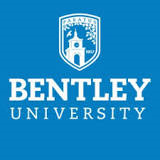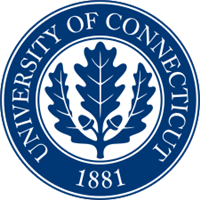What do they do?
Examine, analyze, and interpret accounting records to prepare financial statements, give advice, or audit and evaluate statements prepared by others. Install or advise on systems of recording costs or other financial and budgetary data.
Also known as:
Accountant, Accounting Officer, Audit Partner, Auditor, Certified Public Accountant (CPA), Cost Accountant, Financial Auditor, General Accountant, Internal Auditor, Revenue Tax Specialist
-
4.8%
Change
Ranks #52 in job growth rate4,750Job Openings
Ranks #11 in net job growth
-
Bentley University
Waltham, MA
-
University of Pennsylvania
Philadelphia, PA
-
Anderson University
Anderson, IN
-
Louisiana State University and Agricultural & Mechanical College
Baton Rouge, LA
-
University of Connecticut
Storrs, CT
Looking for colleges that offer a specific major? Use the College Match Tool to find your best-matched schools and discover your estimated Net Price!
- Doctorate or Professional Degree (3%)
- Master's degree (25%)
- Bachelor's degree (58%)
- Associate's degree (7%)
- Some college, no degree (4%)
- High school diploma equivalent (2%)
- Less than high school diploma (<1%)
People in this career often have these skills:
- Reading Comprehension - Understanding written sentences and paragraphs in work-related documents.
- Active Listening - Giving full attention to what other people are saying, taking time to understand the points being made, asking questions as appropriate, and not interrupting at inappropriate times.
- Critical Thinking - Using logic and reasoning to identify the strengths and weaknesses of alternative solutions, conclusions, or approaches to problems.
- Speaking - Talking to others to convey information effectively.
- Writing - Communicating effectively in writing as appropriate for the needs of the audience.
- Mathematics - Using mathematics to solve problems.
- Judgment and Decision Making - Considering the relative costs and benefits of potential actions to choose the most appropriate one.
- Complex Problem Solving - Identifying complex problems and reviewing related information to develop and evaluate options and implement solutions.
- Active Learning - Understanding the implications of new information for both current and future problem-solving and decision-making.
- Monitoring - Monitoring/Assessing performance of yourself, other individuals, or organizations to make improvements or take corrective action.
People in this career often know a lot about:
- Economics and Accounting - Knowledge of economic and accounting principles and practices, the financial markets, banking, and the analysis and reporting of financial data.
- English Language - Knowledge of the structure and content of the English language including the meaning and spelling of words, rules of composition, and grammar.
- Mathematics - Knowledge of arithmetic, algebra, geometry, calculus, statistics, and their applications.
- Administration and Management - Knowledge of business and management principles involved in strategic planning, resource allocation, human resources modeling, leadership technique, production methods, and coordination of people and resources.
- Customer and Personal Service - Knowledge of principles and processes for providing customer and personal services. This includes customer needs assessment, meeting quality standards for services, and evaluation of customer satisfaction.
- Law and Government - Knowledge of laws, legal codes, court procedures, precedents, government regulations, executive orders, agency rules, and the democratic political process.
People in this career often have talent in:
- Written Comprehension - The ability to read and understand information and ideas presented in writing.
- Oral Expression - The ability to communicate information and ideas in speaking so others will understand.
- Deductive Reasoning - The ability to apply general rules to specific problems to produce answers that make sense.
- Mathematical Reasoning - The ability to choose the right mathematical methods or formulas to solve a problem.
- Number Facility - The ability to add, subtract, multiply, or divide quickly and correctly.
- Written Expression - The ability to communicate information and ideas in writing so others will understand.
- Problem Sensitivity - The ability to tell when something is wrong or is likely to go wrong. It does not involve solving the problem, only recognizing that there is a problem.
- Oral Comprehension - The ability to listen to and understand information and ideas presented through spoken words and sentences.
- Inductive Reasoning - The ability to combine pieces of information to form general rules or conclusions (includes finding a relationship among seemingly unrelated events).
- Information Ordering - The ability to arrange things or actions in a certain order or pattern according to a specific rule or set of rules (e.g., patterns of numbers, letters, words, pictures, mathematical operations).
- Near Vision - The ability to see details at close range (within a few feet of the observer).
- Speech Recognition - The ability to identify and understand the speech of another person.
- Speech Clarity - The ability to speak clearly so others can understand you.
People in this career often do these activities:
- Prepare financial documents, reports, or budgets.
- Report information to managers or other personnel.
- Advise others on business or operational matters.
- Advise others on financial matters.
- Collect evidence for legal proceedings.
- Investigate legal issues.
- Examine financial records.
- Oversee business processes.
- Discuss business strategies, practices, or policies with managers.
- Examine financial records or processes.
- Verify accuracy of records.
- Analyze business or financial data.
- Analyze financial information.
- Prepare financial documents.
- Conduct financial or regulatory audits.
- Verify accuracy of financial information.
- Calculate tax information.
- Advise others on human resources topics.
- Represent the interests of clients in legal proceedings.
- Develop business or financial information systems.
- Assess financial status of clients.
- Coordinate regulatory documentation activities.
- Evaluate effectiveness of personnel policies or practices.
This page includes data from:

 Occupation statistics: USDOL U.S. Bureau of Labor Statistics Occupational Employment Statistics
Occupation statistics: USDOL U.S. Bureau of Labor Statistics Occupational Employment Statistics
 Videos: CareerOneStop, USDOL/ETA and the Minnesota Department of Employment & Economic Development
Videos: CareerOneStop, USDOL/ETA and the Minnesota Department of Employment & Economic Development









